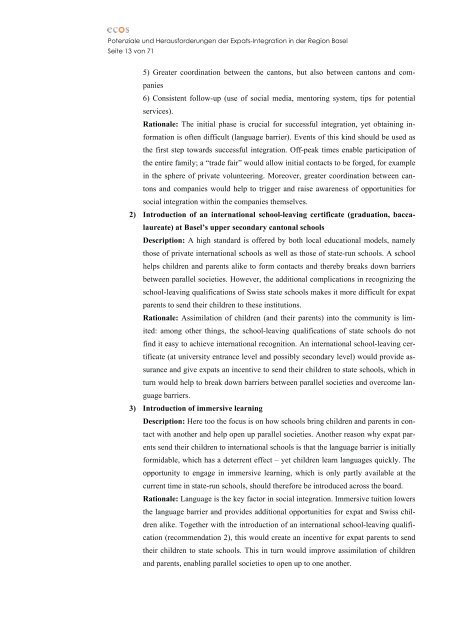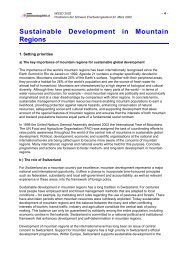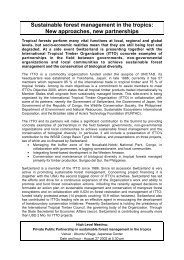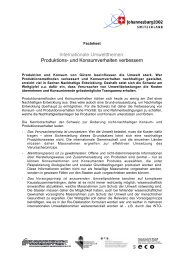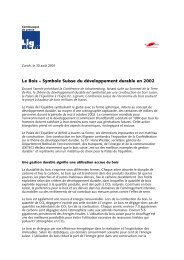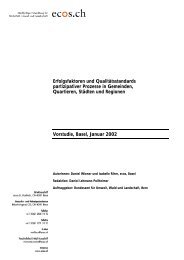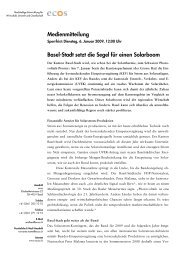Studie - ecos
Studie - ecos
Studie - ecos
Sie wollen auch ein ePaper? Erhöhen Sie die Reichweite Ihrer Titel.
YUMPU macht aus Druck-PDFs automatisch weboptimierte ePaper, die Google liebt.
Potenziale und Herausforderungen der Expats-Integration in der Region Basel<br />
Seite 13 von 71<br />
5) Greater coordination between the cantons, but also between cantons and companies<br />
6) Consistent follow-up (use of social media, mentoring system, tips for potential<br />
services).<br />
Rationale: The initial phase is crucial for successful integration, yet obtaining information<br />
is often difficult (language barrier). Events of this kind should be used as<br />
the first step towards successful integration. Off-peak times enable participation of<br />
the entire family; a “trade fair” would allow initial contacts to be forged, for example<br />
in the sphere of private volunteering. Moreover, greater coordination between cantons<br />
and companies would help to trigger and raise awareness of opportunities for<br />
social integration within the companies themselves.<br />
2) Introduction of an international school-leaving certificate (graduation, baccalaureate)<br />
at Basel’s upper secondary cantonal schools<br />
Description: A high standard is offered by both local educational models, namely<br />
those of private international schools as well as those of state-run schools. A school<br />
helps children and parents alike to form contacts and thereby breaks down barriers<br />
between parallel societies. However, the additional complications in recognizing the<br />
school-leaving qualifications of Swiss state schools makes it more difficult for expat<br />
parents to send their children to these institutions.<br />
Rationale: Assimilation of children (and their parents) into the community is limited:<br />
among other things, the school-leaving qualifications of state schools do not<br />
find it easy to achieve international recognition. An international school-leaving certificate<br />
(at university entrance level and possibly secondary level) would provide assurance<br />
and give expats an incentive to send their children to state schools, which in<br />
turn would help to break down barriers between parallel societies and overcome language<br />
barriers.<br />
3) Introduction of immersive learning<br />
Description: Here too the focus is on how schools bring children and parents in contact<br />
with another and help open up parallel societies. Another reason why expat parents<br />
send their children to international schools is that the language barrier is initially<br />
formidable, which has a deterrent effect – yet children learn languages quickly. The<br />
opportunity to engage in immersive learning, which is only partly available at the<br />
current time in state-run schools, should therefore be introduced across the board.<br />
Rationale: Language is the key factor in social integration. Immersive tuition lowers<br />
the language barrier and provides additional opportunities for expat and Swiss children<br />
alike. Together with the introduction of an international school-leaving qualification<br />
(recommendation 2), this would create an incentive for expat parents to send<br />
their children to state schools. This in turn would improve assimilation of children<br />
and parents, enabling parallel societies to open up to one another.


